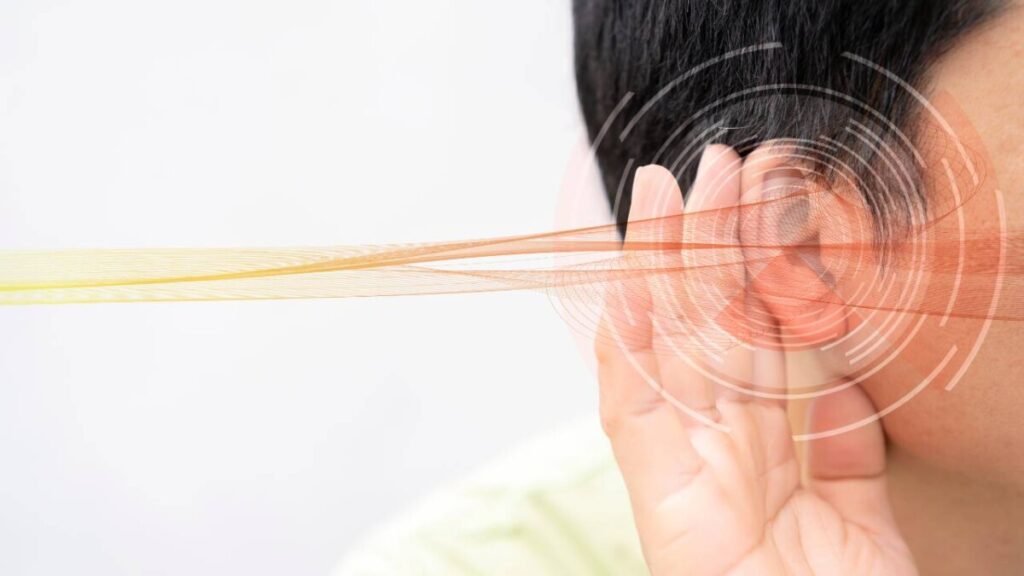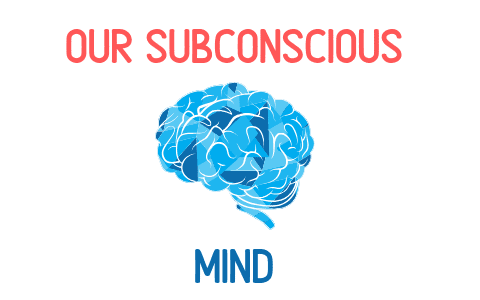Binaural beats are a type of auditory illusion that can be used for various purposes, including relaxation, meditation, and creativity. Many people are curious about how long it takes for binaural beats to work and how often they should listen to them to achieve the desired effects.
Binaural beats can start affecting brain waves within a few minutes of listening, while others suggest that it may take several sessions over a period of days or weeks to notice significant changes. The duration of the effects also varies, with some people reporting immediate benefits that last for hours, while others experiencing more long-term effects after consistent use over time.
Table of Contents
How Long Does It Take for Binaural Beats to Work?
On average, most people notice a shift in their mindset within 5 minutes up to 15 minutes of listening to binaural beats. Nevertheless, this will not be the full benefits as binaural beats work best with a daily listening routine and regular use for at least 22 days.
Binaural beats are a form of auditory stimulation that can help people achieve a relaxed state of mind, reduce anxiety, and improve focus. But how long does it take for binaural beats to work?

Factors Affecting the Time Taken
The time it takes for binaural beats to work can vary depending on several factors, such as:
- The frequency of the binaural beats
- The individual’s brainwave patterns
- The individual’s level of experience with meditation and binaural beats
- The individual’s level of concentration and focus during the listening session
For example, a recording that contains binaural beats and subliminal affirmations and is designed to improve self-confidence or motivation may require 7-14 days of regular listening to really manifest results. The same could be said for a recording designed to improve memory and learning capacity.
However, the theta binaural beat will take between 15 minutes up to 30 minutes for the theta brain frequency to slow down your brain waves that help with focused meditation. After a week of regular use, the same theta binaural beat can begin working and slowing the brain after 5 minutes.
Personal Experience
It’s important to note that the time it takes for binaural beats to work can also vary based on an individual’s personal experience. Some people may find that they experience the benefits of binaural beats immediately, while others may need to listen to them regularly for several weeks before noticing any significant changes.
It’s also worth noting that binaural beats are not a magic solution for all problems. While they can be helpful for reducing stress and improving focus, they should not be relied on as the sole method of treatment for any medical or psychological condition.
In conclusion, the time it takes for binaural beats to work can vary depending on several factors, including the frequency of the beats, the individual’s brainwave patterns, and their level of experience with meditation and binaural beats.
While some people may experience the benefits of binaural beats immediately, others may need to listen to them regularly for several weeks before noticing any significant changes.

How Long Does it Take for Your Brain to Sync with Binaural Beats?
When it comes to binaural beats, one of the most common questions is how long it takes for the brain to sync with the beats. The answer is not straightforward, as it depends on several factors, including the individual’s brainwave patterns, the frequency of the beats, and the length of exposure.
According to a study published in the Journal of Alternative and Complementary Medicine, participants who listened to binaural beats for 30 minutes experienced a significant decrease in anxiety levels. However, it’s worth noting that this is just one study and that individual results may vary.
Another study found that participants who listened to binaural beats for just four weeks experienced improved memory and concentration. However, the study notes that participants listened to the beats for 20 minutes a day, five days a week, which suggests that regular exposure may be necessary to see results.
It’s also important to note that binaural beats are not a quick fix or a magic solution. While some people may experience immediate benefits, others may need to listen to the beats consistently over a longer period to see any changes.
Overall, the length of time it takes for the brain to sync with binaural beats varies from person to person and depends on several factors. Regular exposure may be necessary to see results, but it’s important to remember that binaural beats are not a one-size-fits-all solution.

How Long Do the Effects of Binaural Beats Last?
The effects of binaural beats can vary from person to person and depend on several factors such as the individual’s brainwave activity, the frequency of the binaural beats, and the duration of exposure. Generally, the effects of binaural beats can last anywhere from a few minutes to several hours.
According to a study published in the Frontiers in Neuroscience, the effects of binaural beats on general theta rhythm and frontal midline theta activity can last up to 30 minutes after exposure. The study also found that the effects of binaural beats on brainwave activity can be cumulative, meaning that the longer an individual is exposed to binaural beats, the more pronounced the effects can be.
However, it’s important to note that the effects of binaural beats are not permanent and may require regular exposure to maintain their benefits. In fact, some experts recommend using binaural beats for at least 15-30 minutes a day to experience their full benefits.
It’s also worth mentioning that the effects of binaural beats can be influenced by other factors such as the individual’s state of mind, environment, and overall health. For instance, individuals who are highly stressed or anxious may require longer exposure to binaural beats to experience their full benefits.
In conclusion, the effects of binaural beats can last anywhere from a few minutes to several hours and may require regular exposure to maintain their benefits. The duration of exposure and the individual’s brainwave activity, state of mind, and overall health can all influence the effects of binaural beats.

How Effective are Binaural Beats?
Binaural beats have been gaining popularity as a tool for enhancing various aspects of mental and physical health. While there is some evidence to support the efficacy of binaural beats, more research is needed in order to fully understand their potential benefits.
One study published in the Journal of Alternative and Complementary Medicine found that binaural beats may be effective in reducing anxiety and improving mood. Another study published in the Journal of Medical Engineering & Technology found that binaural beats may be useful in improving cognitive function.
However, it is important to note that these studies had relatively small sample sizes and more research is needed in order to fully understand the potential benefits of binaural beats.
It is also important to note that binaural beats should not be considered a replacement for traditional medical treatment for conditions such as anxiety or depression.
That being said, many people report positive experiences with binaural beats and find them to be a helpful tool for relaxation, meditation, and improving focus. It is important to use binaural beats in a safe and responsible manner, following any instructions or guidelines provided by the creator of the audio.

How Long Before You Notice Binaural Beat Results?
Regardless of the type of binaural beat frequency you are listening to, you should expect your mind to start responding to those tones within 15 minutes. If you are new to binaural beats, it could take 20 minutes up to 30 minutes to begin moving into your desired brain state.
But regular listening increase your brain waves and connection to binaural beats shorting the time.
Depending on what area you are focusing on (i.e. reducing stress) and other circumstances in your day-to-day life, you should feel and think differently about this area you’re working on after a week of regular use.
For instance, you begin to use theta binaural beats to help with focus when meditating. The theta binaural beat will take between 15 minutes up to 30 minutes for the theta brain frequency to slow down your brain waves that help with focused meditation.
After a week of regular use, the same theta binaural beat can begin working and slowing the brain after 5 minutes. Then continue listening to the binaural beat throughout the meditation session to further increase a trance state of mind.
The best thing about binaural beat is your choose brain frequency provides you continuous benefits throughout your listening session.
Unlike other methods, binaural beats work to slow or speed the mind brain waves and works very fast. Therefore, if you want to get into a peak flow work state,
Alpha binaural beats will immediately move your brainwaves into that state. Once there, you can resume listening to the binaural beats for 90 minutes, and you shouldn’t lose concentration.
Consistency is a fundamental component, and some recordings have a more cumulative beneficial effect than others, which means that they will take longer to work.
Usually, you will experience the fastest and more immediate results from binaural beats made for relaxing, meditation or sleep. Others, such as knowledge retention from studying or reading, may take up to 22 days of daily listening to notice the results.
How Many Times A Day Can You Listen To Binaural Beats?
In general, there is no limit to the amount of times you can listen to binaural beats. You can utilise different frequencies for selected goals and divide listening session throughout the day. A maximum listening time of 90 minutes for each binaural beats is recommended. Here’s why in this post, how many times a day should I listen to binaural beats.
Your brain naturally flows into various frequencies throughout your day, depending on the activity you are concentrating on. Therefore, you can assist your mind with a selected number of binaural beat to increase your likelihood of success.
Suggesting you can use theta binaural beats in the morning while meditating, Alpha to concentrate the mind of deep work throughout the day, Beta to study and learn from books in the evening and finally delta to get deep rejuvenating sleep.
More Binaural Beats Question You Might Like The Answer To;
How Long Do Binaural Beats Take To Work Summary
Binaural beats are a promising tool for enhancing focus, relaxation, and sleep. While the research is still limited, many people have reported positive effects from using binaural beats regularly. However, the amount of time it takes for binaural beats to work varies depending on the individual and the specific frequency used.
For those seeking immediate benefits, lower frequency binaural beats in the delta and theta range may be more effective. However, for those seeking long-term benefits, regular use of binaural beats in the alpha and beta range may be more beneficial. It is important to note that binaural beats should not be used as a substitute for medical treatment or therapy.
Overall, the effectiveness of binaural beats depends on various factors such as the individual’s brainwave patterns, the frequency used, and the consistency of use. While some people may experience immediate benefits, others may need to use binaural beats regularly for several weeks before noticing any significant changes.
It is important to approach binaural beats with an open mind and to use them in conjunction with other healthy lifestyle habits such as exercise, healthy eating, and stress reduction techniques. With consistent use and a healthy lifestyle, binaural beats may be a helpful tool for improving overall well-being and cognitive function.


